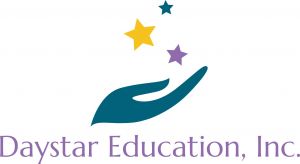503-234-1215
Continuing Education/Elective Courses
(ALL COURSES RUN 9AM-4:30PM)
One Day Courses
- ADHD & Substance Use- 6 hours - $120 (Book Incl.)
This workshop will review the correlations between SUD and ADHD, explore the concept of ADHD as an impairment of executive functions and help develop strategies to improve them. Self Assessment, lecture/discussion, and small group work will be employed to enhance learning. Taught by Nikki Johnson, MA, CADC III.
- Addiction and Personality Disorders - 6 hours -
This course will explore the world view and interpersonal style of clients with Cluster B personality disorders, examine the impact of drug use on the expression of pathology, explore strategies for engagement and retention of these challenging clients and learn to appreciate the "pathology" of early abstinence.
- Criminality and Addiction - 6 hours -
An overview of drug abuse treatment principles for individuals involved in the criminal justice system. Learn differences and similarities between criminal and addicted thinking, including impact on the recovery process, application of Evidence Based Practices showing effectiveness with the population. Taught by Felecia Otis BS, CADC II
DSM-5 - 6 hours -
The purpose of this one day class is to discuss common co-occurring diagnoses between substance use disorders and common mental health diagnoses. The areas to be covered include trauma and stress related disorders and common personality disorders. Taught by Michelle Brandsma, MS, CADC III, MAC.
- Homelessness and Addiction -
This one day course will explore myths and stereotypes and introduce best practices in engagement, prevention and sustainability in meeting the needs of homeless addicts. Taught by Michele Mannix, CADC II.
- Racism as an Ethical Issue - 6 hours - $100
Meets the 6 hour continuing education Ethics requirement. This workshop builds awareness of unintentional counselor bias. Explores cultural context, counselor defenses, micro aggressions, and strategies to enhance counselor competence. Uses video, small group discussion and individual exploration activities. Taught by Nikki Johnson, MA, CADC III.
- Relapse Prevention - 6 hours -
Can we ever talk enough about Relapse Prevention? Let’s not fall into the common misconceptions that “Everybody Relapses” or “Relapse is a part of Recovery”. Let’s work as a group to dialogue and study Martlatt and Gorski’s Prevention Models. Students will leave with a thorough understanding of techniques to reduce risks or the length of a relapse and ingredients that will support success in your clients recovery plan. Taught by Michele Mannix, CADC II.
- Trauma and Substance Use - 6 hours -
This course will focus on identifying the biology of addiction and trauma as well as learning to categorize clinical symptoms that present with each. Participants will explore evidence-based practices designed to deal with the difficulty of maintaining sobriety and the healing of traumatic memories. Taught by Felesia Otis, BS, CADC II.
- Domestic Violence 101- 6 hours-
This class will prepare counselors to educate on and discuss domestic violence, and therapeutically assist clients impacted by domestic violence as they would with any other problem brought to treatment. Class includes group discussion, lectures and group activites. Taught by Katherine Stansbury
